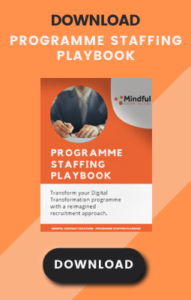The off-payroll regulations are set to be extended to the private sector in 2020 and these rules are designed to ensure that contractors are not working as employees within a business. A recent Government consultation on the off-payroll regulations in the private sector suggests that there aren’t many in favour of the new rules, with most calling for either a delay or for relinquishment of the decision.
It is understandable that businesses and contractors have their concerns about the new legislation, but there are genuine reasons why the government have introduced this and why there is a need to tackle it head on. Let’s look at some possible scenarios related to off-payroll regulations and why there is a strong need to have these in place.
Off-Payroll Regulations – Scenario One
John works as a contractor for JK Limited. He arrives at the office at 9am, waves at Adam, who works as an employee for the company and takes his seat next to Adam. They both work in the same IT Team, where they are building a Java programme. In other words, they are doing the same job.
John is paid at a rate of £500 a day, which means his company are billing invoices of £11,000 each month to JK Limited. Adam, as an employee, receives a salary of £5,000 each month.
John and Adam leave the office at 6pm each day, Adam hops into his Ford Focus 2015, as John opens the door to his Jag 2018.
Please excuse our stereotyping and then consider how does this feel for Adam and what does it do for his motivation to work for the company? He is doing the same job, working the same hours, yet he is receiving half of the salary of John. In this case, we could say that John is an employee and therefore, should be working inside IR35. The new legislation has been implemented to ensure fairness throughout the business.
Scenario Two
Bella is an IT Manager working with the public sector. She has 5 roles to fill within her IT team, but there have been some complaints that her team are unresponsive and as a result, the vacancies have been left unfilled for months.
Bella is struggling with time and resources for arranging interviews in line with the Civil Service Resourcing practices. As she can’t get enough interviewers, she decided that the roles are now critical and decides to hire a contractor. She asks for some CV’s from her preferred agency and meets the three candidates for a coffee and selects her favourite.
Recruitment takes time and effort, and, in many cases, companies are just using contractors to avoid the lengthy process. This ultimately means that contractors are being hired to fill employee roles. They are being hired outside IR35, when they should in fact, be inside IR35.
Scenario Three
Caxone and Gratenex make the same software products and as a result, they are fierce competitors. Caxone focuses on being an employer of choice and offers employee friendly policies, performance management policies and benefits and schemes for employees. It is also an innovative company which creates new products and focuses on research.
Gratenex is a tactical company, often replicating Caxone’s business by hiring contractors to build the same product as Caxone. They undercut Caxone by discarding the contractors quickly to keep costs down.
Gratenex are working hard with long term initiatives and employees, while Caxone are scooping up their ideas, using contractors to carry out the work and making more than Gratenex. This means the innovation is coming from Gratenex, but they are doing worse out of it, even though they are nurturing their employees, spending time and money on initiatives and generally, offering more to the wider society.
It could be argued that this isn’t the right way to use contractors and the new legislation may make businesses think twice about the way they use contractors.
Contractors receive higher pay and lower NI contributions, so it is understandable that it needs to be a fair process. There needs to be clear lines between a contractor and employee and quite often, these are extremely blurred.
Therefore, the new off-payroll regulations may seem like an unnecessary evil, but they can be a great way to ensure employees and contractors are being treated fairly.
With inhouse commercial expertise, we can guide you through how you can satisfy policies and controls, whilst still choosing the right fit interim resourcing service for your Digital Programme. Contact us on info@mindfulcontract.co.uk.


